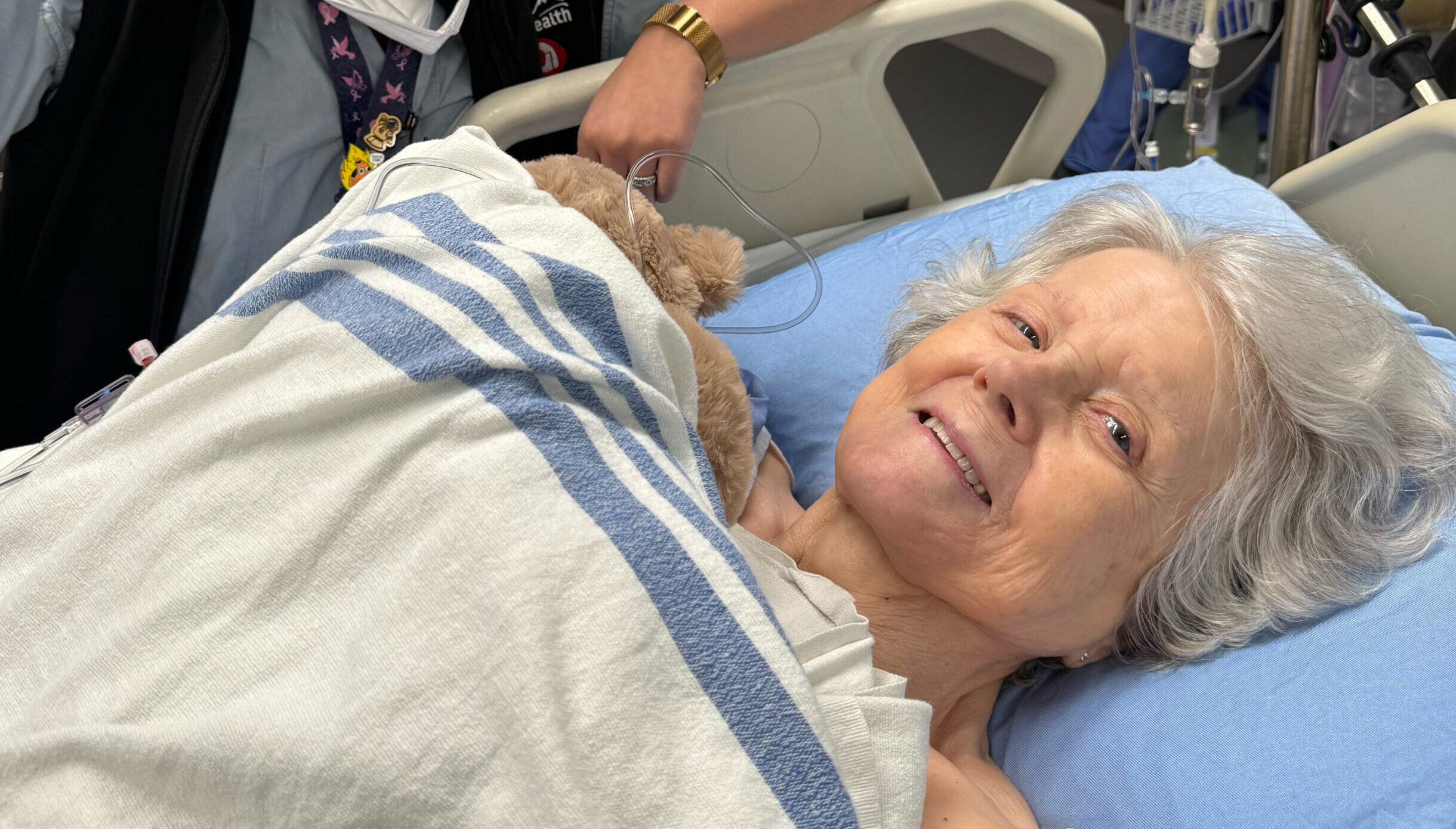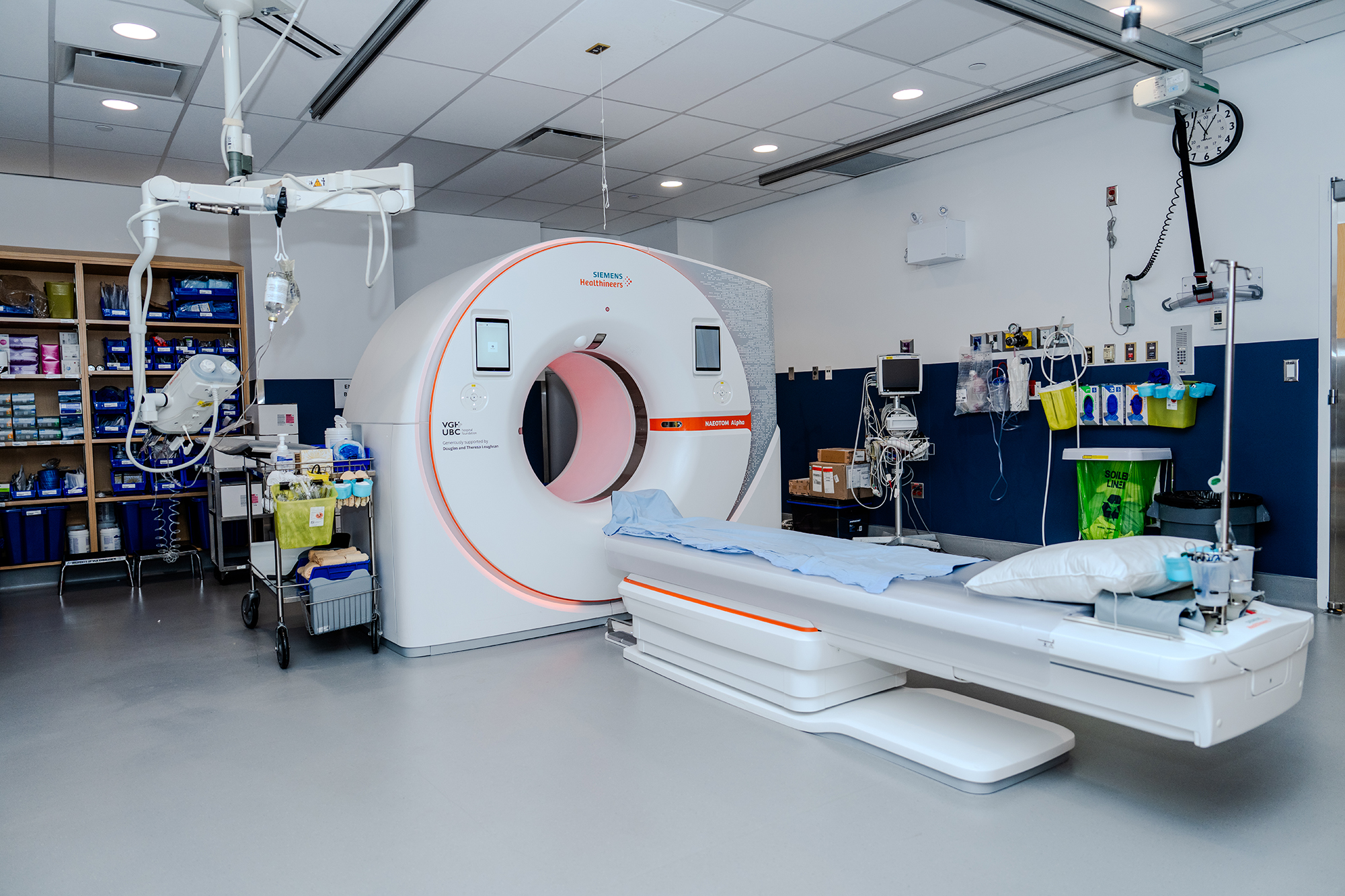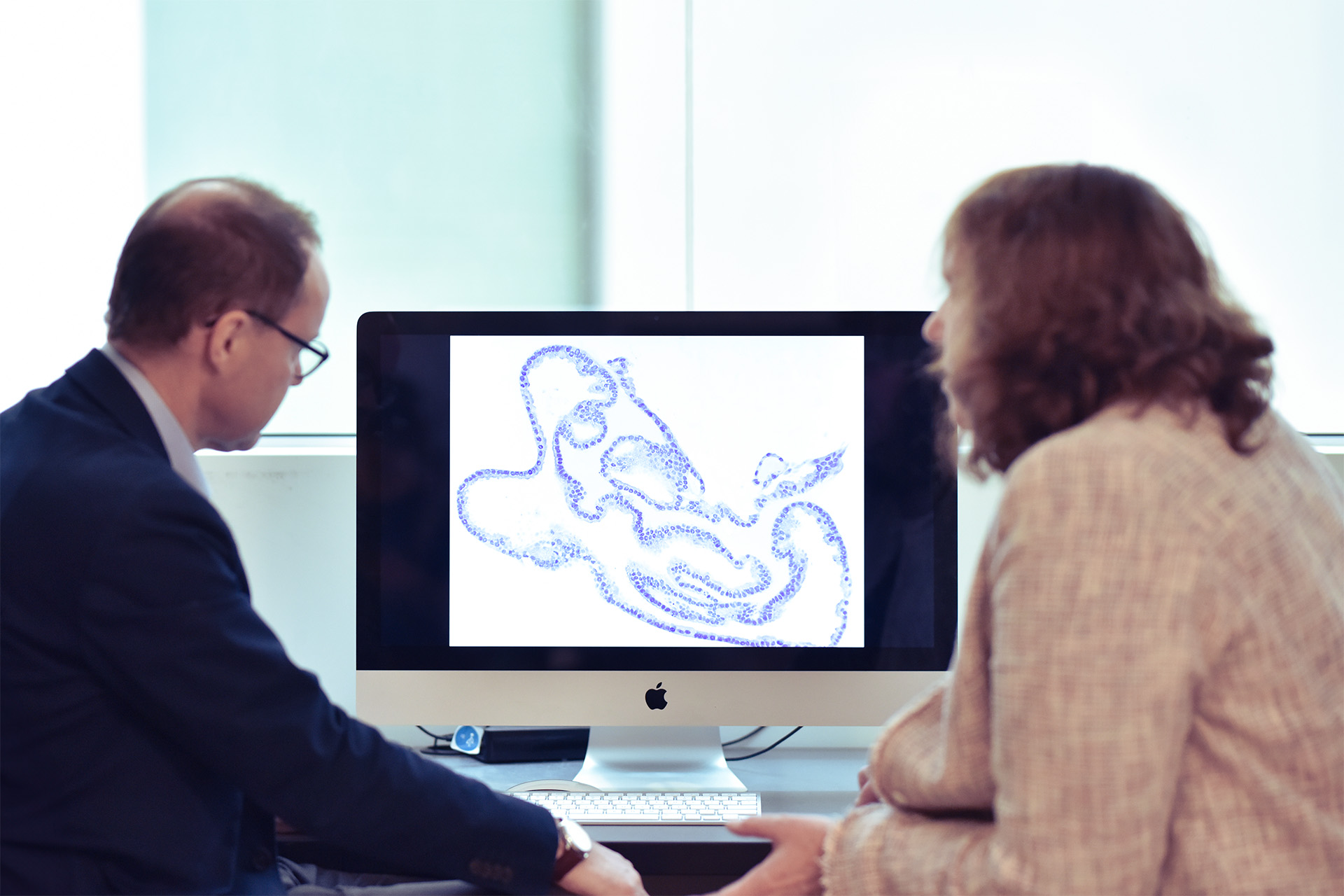For months, Corinne Williams had been experiencing some chest pain and shortness of breath.
But this was different.
From the moment she woke up, she felt unwell. Since she already had an appointment scheduled at the Vancouver General Hospital (VGH) cardiology clinic, she proceeded with her day and took a taxi to the Gordon and Leslie Diamond Health Care Centre at VGH.
“By the time I got there, I knew I was in big trouble,” Williams said. “It was the worst chest pain I’d ever experienced. I made my way up to the cardiology department, and that’s where I couldn’t go any further.”
Williams, 85, was having a heart attack.
Quickly, the staff sprang into action, calling an ambulance and rushing her across the street to the VGH Emergency Department, which bought her some time. Eventually, when Williams settled in the Cardiac Care Unit (CCU), she realized the extent of the damage.
At that point, she was presented with a choice: palliative care, open-heart surgery, or, perhaps, a third option with a new piece of equipment that only recently became available at VGH. Williams, a retired intensive care nurse herself, understood the weight of the decision.
“I really didn’t want open-heart surgery,” she said. “I know the recovery is quite intense. So, I asked, ‘What else can you offer me?’ That’s when they brought up the Impella.”
Small pump, big impact
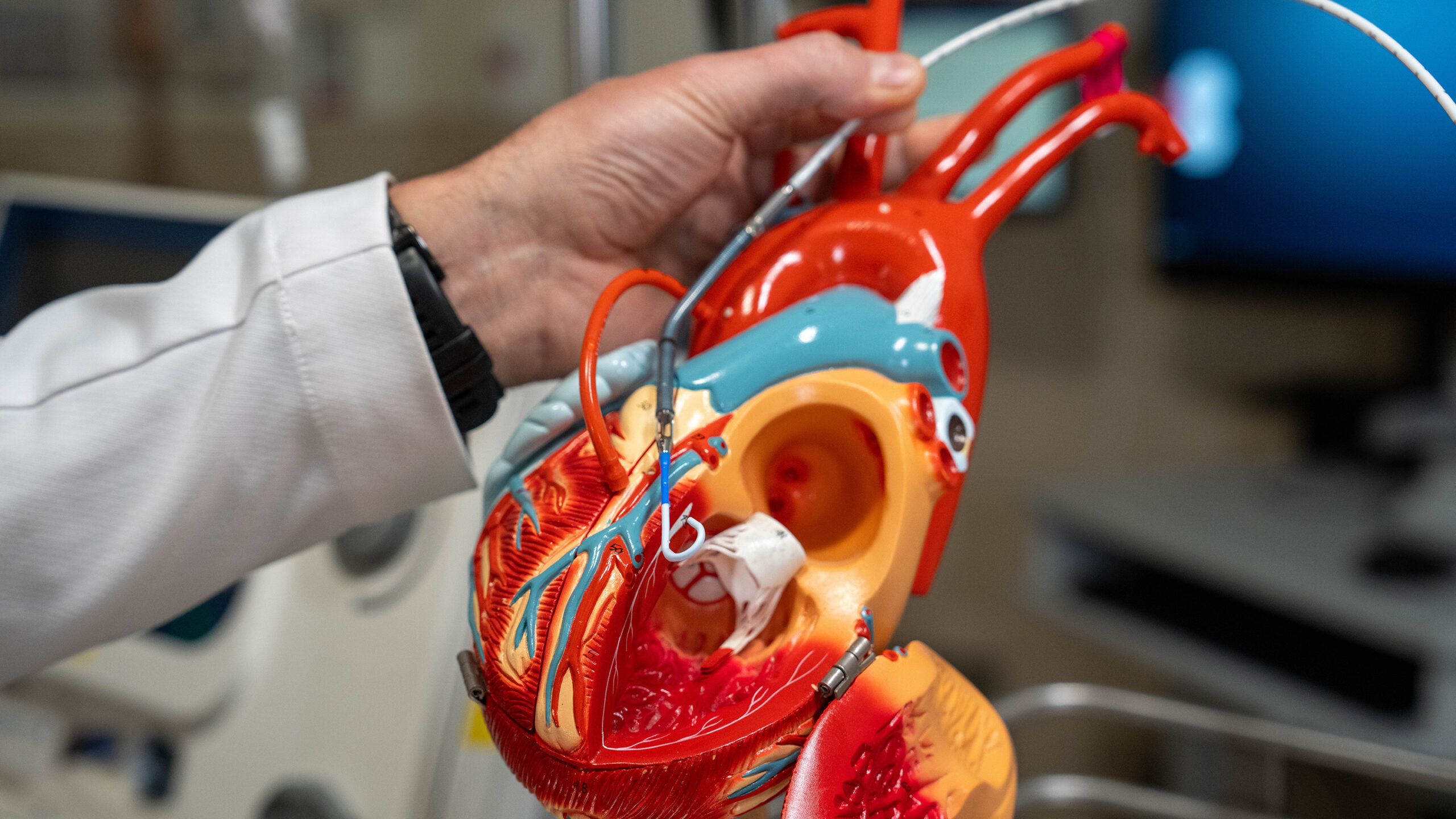
Dr. Gordon Finlayson, an intensivist, cardiothoracic anesthesiologist, and medical director of the VGH Intensive Care Unit (ICU), describes the Impella device as “a portable temporary heart pump” that provides blood flow to the body when the heart is failing. It is the world’s smallest heart pump, according to the manufacturer.
“If your heart is significantly weakened and unable to pump sufficiently on its own, this device, about the diameter of a pencil, is placed in through the aortic valve and then replaces the work of that failing heart,” Dr. Finlayson said. “This helps stabilize the sickest patients with acute heart failure when their hearts just aren’t doing the job required to keep them alive.”
Traditionally, patients in Williams’ condition might require major open-heart surgery. Given her age and preference to avoid such an invasive operation, the Impella allowed Dr. David Wood to proceed with a non-surgical procedure, called Percutaneous Coronary Intervention (PCI).
As the procedure began, the Impella took over the work of Williams’ failing heart for around five minutes, ensuring stable blood flow while Dr. Wood placed a stent to open her blocked arteries.
“Without the Impella, she would not have survived the procedure,” Dr. Finlayson said.
Williams was one of the first patients to benefit from the Impella at VGH. A few days later, she was back at home – feeling better than she had in years.
“It’s been night and day,” Williams said. “I feel like the person I was two years ago, before any of this started. I started having these acute symptoms about a year ago now. And it was just downhill. I was really desperate. Now, I feel like I did before, where I could go out to concerts and live my own life.”
“I feel normal again.”
Fuelled by philanthropy
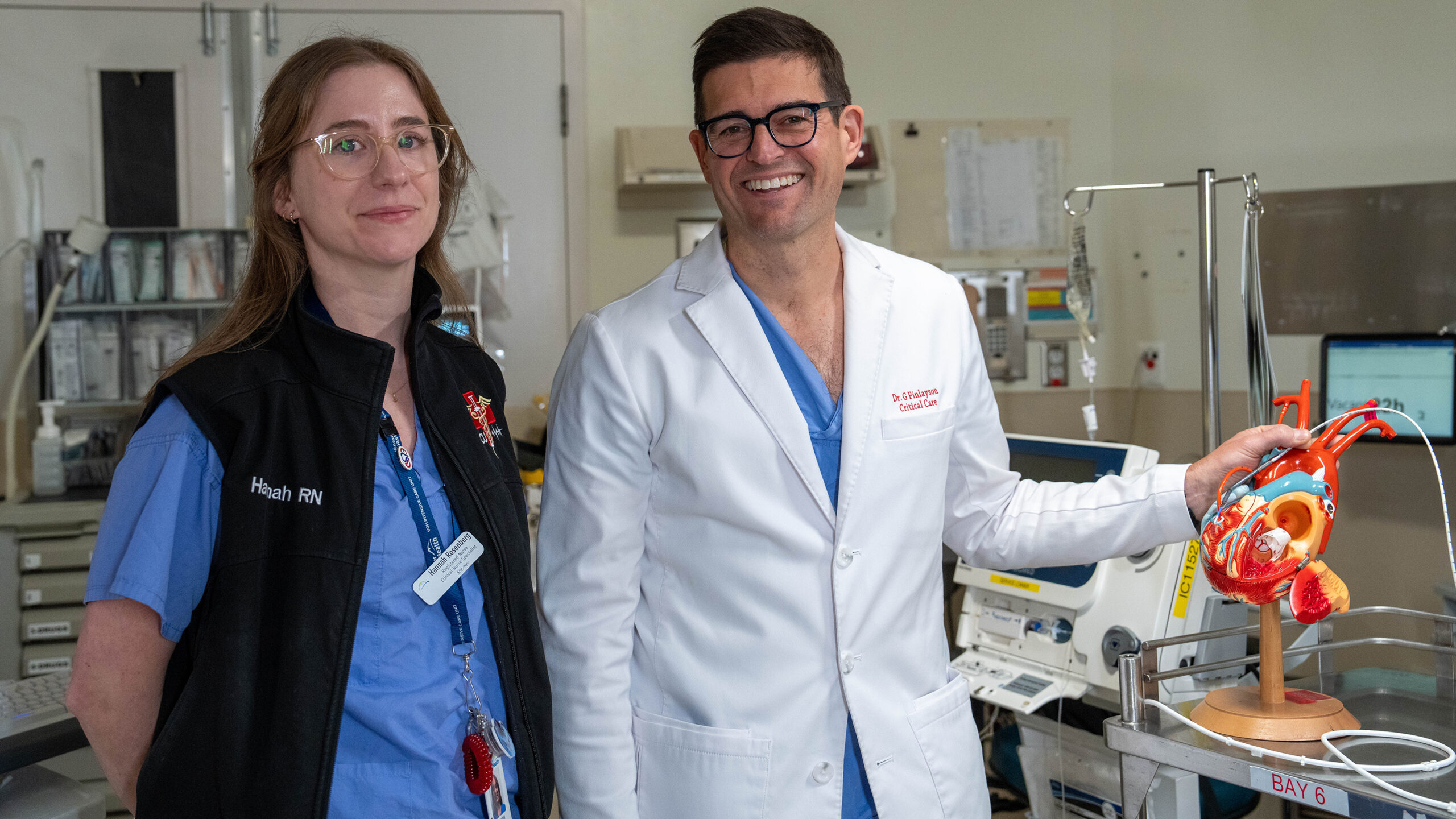
The Impella was funded entirely by donations to VGH & UBC Hospital Foundation. In fact, it was Dr. Finlayson’s next-door neighbour who donated the funds to acquire the device after undergoing a lifesaving, open-heart surgery at VGH.
“He decided that he wanted to give back,” Dr. Finlayson said. “Within our environment, to deliver world-class care, oftentimes we rely on the power of philanthropy through the Foundation. These are expensive devices … and what donors have enabled for us, when we know it’s a device that will work or a therapy that is proven, we can utilize donor funds to rapidly bring it in to affect practice immediately.”
In this case, the Impella was used within 30 days of the donation.
Hannah Rosenberg, clinical nurse specialist at the VGH ICU, played a key role in training staff and ensuring the hospital was ready to deploy the device swiftly.
“I remember Dr. Finlayson arrived in my office and asked, ‘How quickly can we get the staff ready to use Impella in the hospital?’” Rosenberg said. “And we were able to do it quickly enough to save these patients’ lives. That’s what philanthropy means to me.”
For Williams, who said she would have just gone home if open-heart surgery was the only option, it truly was the difference between life and death.
“I know I wouldn’t be here without the generosity of people who contribute to the advancement of technology in medicine,” she said. “It was life-changing for me. It was lifesaving.”
VGH & UBC Hospital Foundation partners with donors to fuel groundbreaking research, cutting-edge technology, and life-saving care benefitting everyone in BC. To donate, visit vghfoundation.ca/ways-to-give.
Share this:
